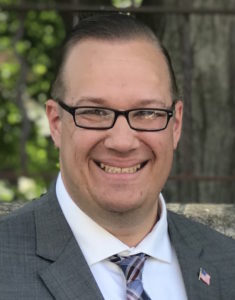LEGISLATURE ALSO PPROVES BILL TO PUBLICLY DISCLOSE DATA & ADDRESS DISPARITIES

This week, State Senator Nick Collins and State Representative David Biele announced a new policy from the Department of Public Health (DPH) of the Commonwealth of Massachusetts that allows for in-person visitation at long-term care facilities.
Prior to the announcement, Sen. Collins and Rep. Biele were in regular contact with DPH to advocate for increased support systems for residents of nursing homes and assisted living facilities impacted by COVID-19.
The policy goes into effect on June 3, 2020 and allows for visits provided that physical distancing and certain protections are in place. According to the advisory issued by DPH to nursing home and rest home administrators across the Commonwealth, visitations can occur at a designated outdoor visitation space, provided that physical distancing and other protections are in place.
These measure include surgical masks for residents, facial coverings for visitors, and visitors must remain at least 6 feet apart from residents. Residents who have recovered from COVID-19 may be visited.
“Our seniors, our families, need support right now, and this is an important step in carefully reopening our communities,” said Senator Collins. “I want to thank my fellow elected South Boston colleagues for their collective advocacy on this issue.”
“This new policy will allow residents in nursing homes and assisted living facilities to experience the love and support of family members,” said Rep. Biele. “I appreciate the efforts of the Department of Public Health in making these visits possible, and will continue to work with my colleagues to advocate for the care and support of our seniors.”
In addition to this updated visitation policy, the Massachusetts Legislature recently passed legislation to make more information about COVID-19 cases publicly available, including cases at elder care facilities and soldiers’ homes. The legislation, entitled An Act addressing COVID-19 data collection and disparities in treatment, will provide a greater understanding on how the virus is affecting those in locations hardest hit by the pandemic, including elder care facilities and urban areas.
The legislation also creates a task force to provide recommendations to alleviate disparities in infection and treatment among populations disproportionally impacted by the outbreak. The bill has been sent to the Governor for approval













